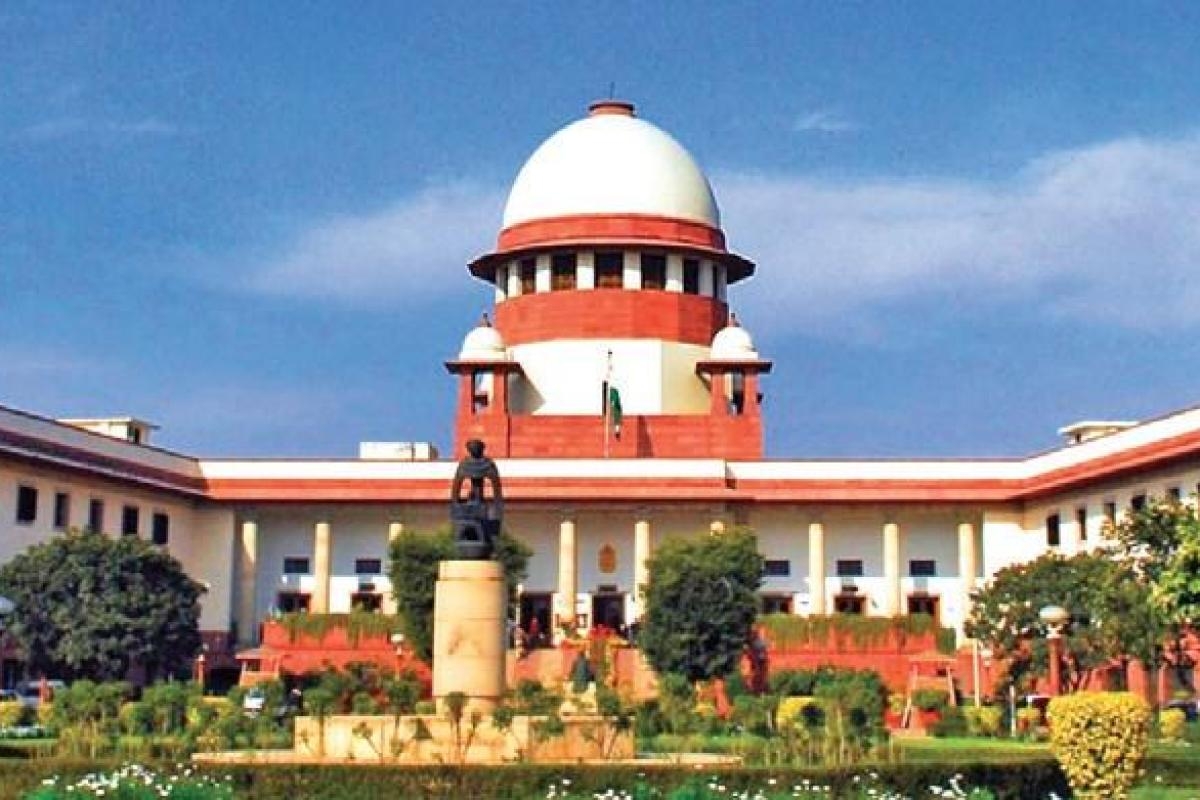App to empower Mahakumbh Police with swift response capabilities
In line with Chief Minister Yogi Adityanath’s vision, a dedicated app is being developed to address the unique challenges faced by police personnel deployed during Mahakumbh.
At the outset, the Additional Advocate General Garima Prashad, representing the Uttar Pradesh government, informed the top court that the state government has come to the court with clean hands as it has withdrawn notices sent to the anti-CAA protesters to recover damages to the properties.

Supreme Court of India. (Photo Courtesy: Twitter)
The Supreme Court on Friday directed Uttar Pradesh government to refund the recoveries made from the anti-CAA protesters and restore to them their properties if attached by the state authorities concerned for the alleged damages.
A bench of Justices D Y Chandrachud and Surya Kant said if recoveries have been made following the notices, then those have to be paid back.
Advertisement
At the outset, the Additional Advocate General Garima Prashad, representing the Uttar Pradesh government, informed the top court that the state government has come to the court with clean hands as it has withdrawn notices sent to the anti-CAA protesters to recover damages to the properties.
Advertisement
Prashad. however urged the top court to maintain status quo in connection with properties attached in the matter.
Justice Chandrachud said there shall be a refund of the damages recovered in the meantime, however it will be subject to the claim’s tribunal, under new law.
To Prashad’s submission before the top court for maintaining status quo as certain properties have been taken into custody by the state government already, the bench replied it is against the law and the court cannot go against the law.
When Prashad submitted that the model code of conduct has been placed in the state, the bench told Prashad this does not stop them from following the law and “when you have to implement a judgment of the Supreme Court how does the model code of conduct stop you”.
The bench said if an attachment has been done against the law and if such orders have been recalled, how can attachment go on? Justice Chandrachud said: “Once orders are recalled, then how can attachment continue…”
On the argument that this order of the top court will have an impact on the deterrence in view that there has been no incident in the state in the past two years, the top court did not appear convinced.
She further submitted that the court is only looking at small vendors, etc., but that is not the case and the entire law will be frustrated if refund is ordered.
“No, law cannot be frustrated…as you bought a new law. All deference against the evasion of law has to be within four corners of law and it cannot lie outside the four corners of the law,” said Justice Chandrachud.
The new law — Uttar Pradesh Recovery of Damages to Public and Private Property Act, 2020 — empowers the state government to set up tribunals to decide claims for damage to property.
On February 11, the top court had told the Uttar Pradesh government to withdraw these notices, otherwise it would quash them. Citing the top court’s verdicts in 2009 and 2018, the bench said judicial officers should have been appointed in claim tribunals, but the state government appointed Additional District Magistrates.
Earlier in the day, the Uttar Pradesh government told the apex court that it has withdrawn 274 recovery notices and proceedings initiated against anti-CAA protestors in 2019 for damages caused to public and private properties.
The court has granted liberty to the UP government to proceed against alleged anti-CAA protestors under the new law — Uttar Pradesh Recovery of Damages to Public and Private Property Act notified on August 31, 2020.
The apex court was hearing a plea filed by one Parwaiz Arif Titu seeking quashing of notices sent to alleged protestors by the district administration for recovering losses caused by damage to public properties during the anti-Citizenship (Amendment) Act (CAA) agitations in UP and asked the state to respond to it.
The plea has alleged that such notices have been sent in an “arbitrary manner” against a person who had died six years ago at the age of 94 and also to several others including two people who are aged above 90.
Advertisement